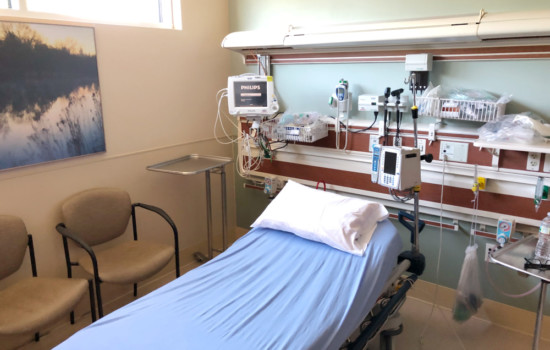Medical Aid-in-Dying
Terminally ill patients deserve access to the full range of end of life care, including the right to peacefully end their life on their own terms, if and when they choose to.

Terminally ill patients and their families must make many difficult decisions. It is essential that in a secular country, we protect their freedom to make these decisions without the interference or imposition of a stranger’s religious beliefs. Unfortunately, for most Americans, access to end of life options is restricted for this very reason.
Seven states (Oregon, Washington, Montana, Vermont, California, Colorado and Hawaii) and the District of Columbia have authorized medical-aid-in-dying: the ability for a terminally-ill, medically competent adult to request and receive prescription medication to bring about a peaceful death.
While some opponents to medical aid-in-dying argue that it will lead to coercion and abuse, particularly of the elderly and the disabled, there is no evidence to support this claim either in the language of the legislation or the implementation of the law in states that have passed it.
Many of the arguments against medical aid-in-dying are based rooted in extreme religious interpretations of the sanctity of life. Terminally-ill patients are not faced with a choice of whether or not they can live; medical aid-in-dying as part of quality end-of-life care can help terminally-ill adults decide for themselves how they would like to spend their remaining time. Furthermore, to qualify for medical aid-in-dying, patients must be assessed as mentally competent by their physician to make this decision voluntarily.
Medical aid-in-dying empowers terminally ill patients with the choice die on their own terms, at the time and place of their choosing and in accordance with their own conscience and beliefs. The conditions of one’s death, one of the most deeply personal moments in one’s life and in the lives of their families, should be left to the patient and their doctor.
Related News

Senator Kirsten Gillibrand on Religious Exemptions for Healthcare
On July 1, 2019, Gillibrand tweeted about the temporary stay placed on the Trump administration’s Health Care “Conscience rights” rule which would allow providers to opt out of providing services that…

Medically assisted suicide becomes legal in Hawaii
April 6, 2018
Medical aid-in-dying passes Senate, heads to governor
March 30, 2018


